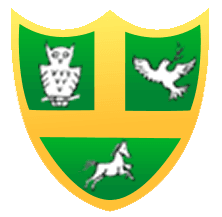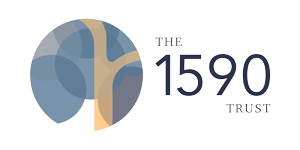Music
Article 31: Every child has the right to relax, play and take part in a wide range of cultural and artistic activities.
Intent: What we are trying to achieve in our curriculum?
Our curriculum is designed to meet and address the needs of the children who attend our school. It is ambitious, inclusive, broad and balanced. It is designed to provide a progression of knowledge, skills and vocabulary with clear end points, at the end of key phases in school. The threads ‘Be ready, Be Respectful and Be Safe’ provide the intent of our curriculum design and are implemented throughout Music.
Characteristic |
What do we want to develop in our children at Kirklevington? |
What does this look like in our School? |
Be Ready |
Be Ambitious – aim high, exposure to experts and role models, challenge provided in teaching knowledge, skills and vocabulary |
|
|
Be Independent – Prepared for now, the next steps and for life |
|
|
Be Resilient – confident, develop self-regulation, well-being strategies and be problem solvers |
|
|
||
Be Respectful |
Respectful behaviours – towards ourselves, our peers and others |
|
|
Respect rights -RRSA – Understand our rights, how they affect our lives and rights of children globally, celebrating differences |
|
|
Respect the environment – our school, the community and the wider world |
|
|
||
Be Safe |
Keep ourselves safe – know how to report concerns and worries, including with friendships |
|
|
Being safe in the school and community – Knowledge about, our families, the school, the local context and wider world |
|
|
Being safe online –Using technology for the right reasons and knowing its limitations |
|
Implementation
At Kirklevington Primary School, we make music a very enjoyable learning experience. The music curriculum ensures children sing, listen, play, perform and evaluate. This is embedded in the classroom activities as well as our weekly singing assemblies, peripatetic lessons and music performances.
Singing lies at the heart of our school and everyone is involved in weekly singing practice. Through singing songs, children learn about the structure, organisation and different forms of music. The elements of music are taught in the classroom lessons so that children are able to understand how music is made, played, appreciated and analysed. Children have opportunities to perform songs they have learned within the school Nativity and the end of Year Performance for KS2. There is also an opportunity for both KS1 and KS2 children to become members of the school choir. As part of the choir, they have opportunities to perform within Music Performance afternoons or within the local community at the local care home and Christmas tree lighting.
In KS1, children are taught music through carefully planned lessons involving singing and the use of tuned and untuned percussion instruments. Each year, children also take part in a rhythm and percussion workshop provided by a music specialist from Tees Valley Music Service (TVMS).
In KS2, music lessons are provided by a music specialist from Apollo Music as part of Conyers School Go Music initiative. The curriculum provided to children in the school is progressive in design and previous skills are built on as children move through each year group. Children learn how to read notation and have the opportunity to learn tuned and untuned instruments, which include ukulele and keyboard. As the year progresses they are able to use these skills to create their own compositions and perform to others.
All children have the option to learn an instrument within their time at Kirklevington Primary School. A wide range of peripatetic opportunities are offered to all age groups starting with ukulele at EYFS, through to keyboard and guitar at KS1 and KS2. Children in KS2 also have the opportunity to learn a woodwind and stringed instruments or drums, if they wish to. Each week our rock school meet as part of an extra-curricular group.
During the year, all children will have the opportunity to develop their understanding, skills and techniques in music. We are very proud of our musical achievements at Kirklevington Primary School. We welcome parents to our annual music performance afternoons and productions throughout the year to share the musical ability we have at our school.
Impact
Teachers will assess children’s work in music by making informal judgments during lessons as children demonstrate their ability in music in a variety of different ways. Teachers assess work and give oral or written feedback as necessary to inform future progress. Older pupils are encouraged to make judgements about how they can improve their own work. Assessment is done by observing children working and performing, by listening to their responses and by examining work produced. KS2 children also take part in a listening skills test each term.
Music enriches the lives of people, and so we wish to involve as many children as possible in musical activities. Through the child’s journey at Kirklevington Primary School, their musical skills and understanding are built on year on year, from singing simple songs from memory and performing simple rhythm patterns in KS1, to more advanced techniques skills, and understanding in lower KS2, further developing in upper KS2 where the children are able to play an instrument confidently, and have the ability to read and follow a simple musical score and perform to an audience. Throughout all of this, the child’s enjoyment of music is a key element, running alongside the ‘taught’ musical skills and objectives.

